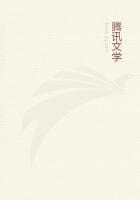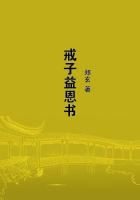There are exceptions to the principle that every man is presumed to possess ordinary capacity to avoid harm to his neighbors, which illustrate the rule, and also the moral basis of liability in general.When a man has a distinct defect of such a nature that all can recognize it as ****** certain precautions impossible, he will not be held answerable for not taking them.Ablind man is not required to see at his peril; and although he is, no doubt, bound to consider his infirmity in regulating his actions, yet if he properly finds himself in a certain situation, the neglect of precautions requiring eyesight would not prevent his recovering for an injury to himself, and, it may be presumed, would not make him liable for injuring another.So it is held that, in cases where he is the plaintiff, an infant of very tender years is only bound to take the precautions of which an infant is capable; the same principle may be cautiously applied where he is defendant. Insanity is a more difficult matter to deal with, and no general rule can be laid down about it.There is no doubt that in many cases a man may be insane, and yet perfectly capable of taking the precautions, and of being influenced by the motives, which the circumstances demand.But if insanity of a pronounced type exists, manifestly incapacitating the sufferer from complying with the rule which he has broken, good sense would require it to be admitted as an excuse.
Taking the qualification last established in connection with the general proposition previously laid down, it will now be assumed that, on the one hand, the law presumes or requires a man to possess ordinary capacity to avoid harming his neighbors, unless a clear and manifest incapacity be shown; but that, on the other, it does not in general hold him liable for unintentional injury, unless, possessing such capacity, he might and ought to have foreseen the danger, or, in other words, unless a man of ordinary intelligence and forethought would have been to blame for acting as he did.The next question is, whether this vague test is all that the law has to say upon the matter, and the same question in another form, by whom this test is to be applied.
Notwithstanding the fact that the grounds of legal liability are moral to the extent above explained, it must be borne in mind that law only works within the sphere of the senses.If the external phenomena, the manifest acts and omissions, are such as it requires, it is wholly indifferent to the internal phenomena of conscience.A man may have as bad a heart as he chooses, if his conduct is within the rules.In other words, the standards of the law are external standards, and, however much it may take moral considerations into account, it does so only for the purpose of drawing a line between such bodily motions and rests as it permits, and such as it does not.What the law really forbids, and the only thing it forbids, is the act on the wrong side of the line, be that act blameworthy or otherwise.
Again, any legal standard must, in theory, be one which would apply to all men, not specially excepted, under the same circumstances.It is not intended that the public force should fall upon an individual accidentally, or at the whim of any body of men.The standard, that is, must be fixed.In practice, no doubt, one man may have to pay and another may escape, according to the different feelings of different juries.But this merely shows that the law does not perfectly accomplish its ends.
The theory or intention of the law is not that the feeling of approbation or blame which a particular twelve may entertain should be the criterion.They are supposed to leave their idiosyncrasies on one side, and to represent the feeling of the community.The ideal average prudent man, whose equivalent the jury is taken to be in many cases, and whose culpability or innocence is the supposed test, is a constant, and his conduct under given circumstances is theoretically always the same.
Finally, any legal standard must, in theory, be capable of being known.When a man has to pay damages, he is supposed to have broken the law, and he is further supposed to have known what the law was.
If, now, the ordinary liabilities in tort arise from failure to comply with fixed and uniform standards of external conduct, which every man is presumed and required to know, it is obvious that it ought to be possible, sooner or later, to formulate these standards at least to some extent, and that to do so must at last be the business of the court.It is equally clear that the featureless generality, that the defendant was bound to use such care as a prudent man would do under the circumstances, ought to be continually giving place to the specific one, that he was bound to use this or that precaution under these or those circumstances.The standard which the defendant was bound to come up to was a standard of specific acts or omissions, with reference to the specific circumstances in which he found himself.If in the whole department of unintentional wrongs the courts arrived at no further utterance than the question of negligence, and left every case, without rudder or compass, to the jury, they would simply confess their inability to state a very large part of the law which they required the defendant to know, and would assert, by implication, that nothing could be learned by experience.But neither courts nor legislatures have ever stopped at that point.
>From the time of Alfred to the present day, statutes and decisions have busied themselves with defining the precautions to be taken in certain familiar cases; that is, with substituting for the vague test of the care exercised by a prudent man, a precise one of specific acts or omissions.The fundamental thought is still the same, that the way prescribed is that in which prudent men are in the habit of acting, or else is one laid down for cases where prudent men might otherwise be in doubt.













